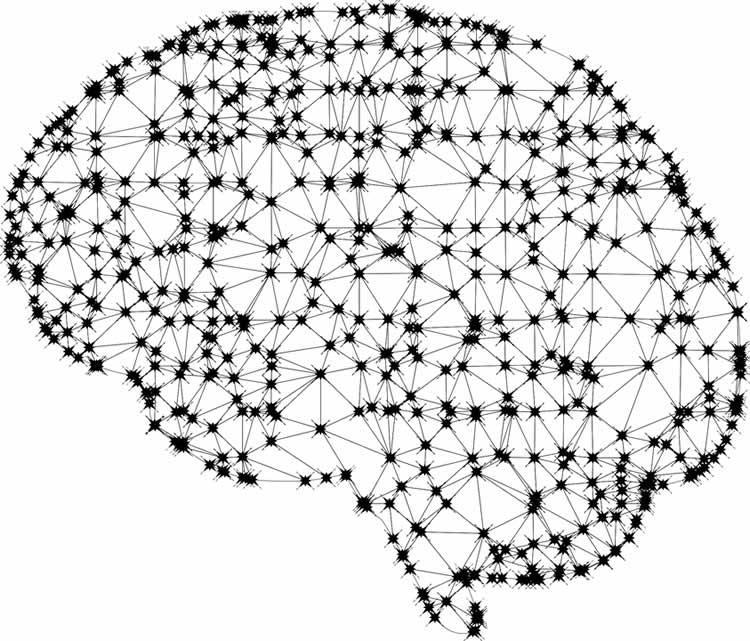Summary: Researchers report that for memory formation, the nucleus accumbens is both upstream and influential.
Source: City College of New York.
Our ability to learn, remember, problem solve, and speak are all cognitive functions related to different parts of our brain. If researchers can identify how those brain parts communicate and exchange information with each other, clinicians and surgeons can better understand how diseases like Alzheimer’s and brain cancer affect those cognitive functions.
The majority of existing simulation studies show that the parts of the brain with high connectivity, the so-called “hubs”, are most important when it comes to several different cognitive tasks. But the results of a recent and rare in-vivo study just published in Nature Communications demonstrate that the nucleus accumbens (NAc) – a part of the brain with weak connections – plays an unexpectedly influential role in enhancing the memory network.
The study was led by Gino Del Ferraro, Research Associate in the Levich Institute at the City College of New York in collaboration with a team of CCNY researchers and a group of researchers at Instituto de Neurosciencia in Spain, led by Andrea Moreno. Del Ferraro and team provided the theoretical analysis, modeling and predictions, while the Spanish team performed the in-vivo validations of the predictions.
The study’s goal was to identify which areas of the brain could be stimulated to enhance memory by identifying which are the influential nodes in the memory brain network within the three different areas for brain integration: hippocampus, prefontal cortex and nucleus accumbens (NAc).

Previous studies of cognitive tasks showed the NAc was downstream of the hippocampus and the prefontal cortex and thus not influential for brain integration. In fact Del Ferraro and team proved that, for memory formation, the NAc is upstream and influential.
The results of the CCNY-led research are worth noting, as is the methodology used to achieve them. Del Ferraro observes: “The effects of removing a node from a network has been studied with simulations, both for human and animal brain networks, but direct in-vivo validations are rare. Thus, up to this point, there was no well-grounded approach to predict which nodes are essential for brain integration.”
Del Ferraro and team are currently collaborating with Memorial Sloan Kettering Cancer Center in NYC, trying to apply similar techniques on people who have brain cancer in the language parts of the brain. They are attempting to identify which are the essential nodes for language production so that if patients undergo neural surgery, the surgeon knows which parts of the brain need to be preserved.
Source: Rebecca Rivera – City College of New York
Publisher: Organized by NeuroscienceNews.com.
Image Source: NeuroscienceNews.com image is in the public domain.
Original Research: Open access research for “Finding influential nodes for integration in brain networks using optimal percolation theory” by Gino Del Ferraro, Andrea Moreno, Byungjoon Min, Flaviano Morone, Úrsula Pérez-Ramírez, Laura Pérez-Cervera, Lucas C. Parra, Andrei Holodny, Santiago Canals & Hernán A. Makse in Nature Communications. Published June 11 2018
doi:10.1038/s41467-018-04718-3
[cbtabs][cbtab title=”MLA”]City College of New York “Weak Brain Nodes Have Strong Influence on Memory Network.” NeuroscienceNews. NeuroscienceNews, 20 June 2018.
<https://neurosciencenews.com/brain-node-memory-9391/>.[/cbtab][cbtab title=”APA”]City College of New York (2018, June 20). Weak Brain Nodes Have Strong Influence on Memory Network. NeuroscienceNews. Retrieved June 20, 2018 from https://neurosciencenews.com/brain-node-memory-9391/[/cbtab][cbtab title=”Chicago”]City College of New York “Weak Brain Nodes Have Strong Influence on Memory Network.” https://neurosciencenews.com/brain-node-memory-9391/ (accessed June 20, 2018).[/cbtab][/cbtabs]
Abstract
Finding influential nodes for integration in brain networks using optimal percolation theory
Global integration of information in the brain results from complex interactions of segregated brain networks. Identifying the most influential neuronal populations that efficiently bind these networks is a fundamental problem of systems neuroscience. Here, we apply optimal percolation theory and pharmacogenetic interventions in vivo to predict and subsequently target nodes that are essential for global integration of a memory network in rodents. The theory predicts that integration in the memory network is mediated by a set of low-degree nodes located in the nucleus accumbens. This result is confirmed with pharmacogenetic inactivation of the nucleus accumbens, which eliminates the formation of the memory network, while inactivations of other brain areas leave the network intact. Thus, optimal percolation theory predicts essential nodes in brain networks. This could be used to identify targets of interventions to modulate brain function.






